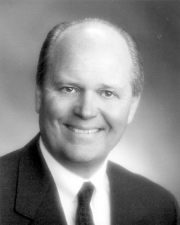Opportunity zones: Development bonanza or not so much - by Jonathan Avery

The Tax Cuts and Jobs Act of 2017 includes provisions which have the potential to encourage a new round of stimulus to investment in commercial real estate located in rural areas and distressed urban areas. In particular are the provisions which provide tax incentives for reinvestment of capital gains, tax deferred, in “Opportunity Zones” identified by state and local government as needing economic development.
The basic tax incentive is that investors may defer tax on any prior gains through 2026 provided that the gain is reinvested in a “Qualified Opportunity Fund.” Further, if the investor retains this fund investment for at least ten years there would be no tax on any new gain in the investment. In order to qualify, these special funds must be established for the purpose of investing in qualified Opportunity Zone properties. They must maintain at least 90% of their assets in qualified properties.
Massachusetts has designated 138 Opportunity Zones in 79 cities and towns. To meet the mandate of including rural properties as well as urban areas, these designations range across the state from the cities in eastern and central Massachusetts to those in the far western part of the state, including North Adams, Chicopee and Springfield. Rural areas in the hill towns of western Massachusetts are included as well as towns on the Cape.
At first glance, what could be the drawbacks of such a program. It does not require direct government funding and should be the spark to development in areas that need it. However, it has spurred some confusion and controversy among professionals.
The confusion is in the details. Many tax advisors and accountants are of the view that the rules and regulations governing establishing the funds and investors uncertainty are hampering substantial investment. It seems that time will solve these uncertainties, however.
Another issue voiced by professionals is whether the success of this program will be limited by competing existing programs such as the Housing Development Incentive Program and other Public Private Partnership opportunities. Many feel that this potential competition muddies the waters for investors and project sponsors. As noted in her recent article in Bisnow Boston, Cameron Sperance states “Boston’s commercial real estate community is bullish on growth heading into 2019, but it isn’t sure Opportunity Zones are going to spark another development boom”.
In an interesting recent development reported by Mark Heschmeyer in CoStar News, the Boulder Colorado City Council has proposed to block many types of new development in its Opportunity Zone. The concern is that this program could accelerate gentrification by demolition of existing affordable housing and affordable business rentals. The redevelopment of these sites would likely be high end housing and expensive new commercial and retail space. This response is still in progress but is an interesting one.
The bottom line is that there is good potential in this program to encourage private investment in many areas which need it. In order for this to be a success, the “infrastructure” of the program needs to evolve. The regulations and rules need to be clarified and a sufficient number of well managed Opportunity Funds need to be established.
Jonathan Avery, MAI, CRE, is president of Avery Associates, Acton, Mass.
Newmark negotiates sale of 10 Liberty Sq. and 12 Post Office Sq.

Four tips for a smooth 1031 Exchange - by Bill Lopriore

Make PR pop by highlighting unique angles - by Stanley Hurwitz

How COVID-19 has impacted office leasing - by Noble Allen and John Sokul








.png)
